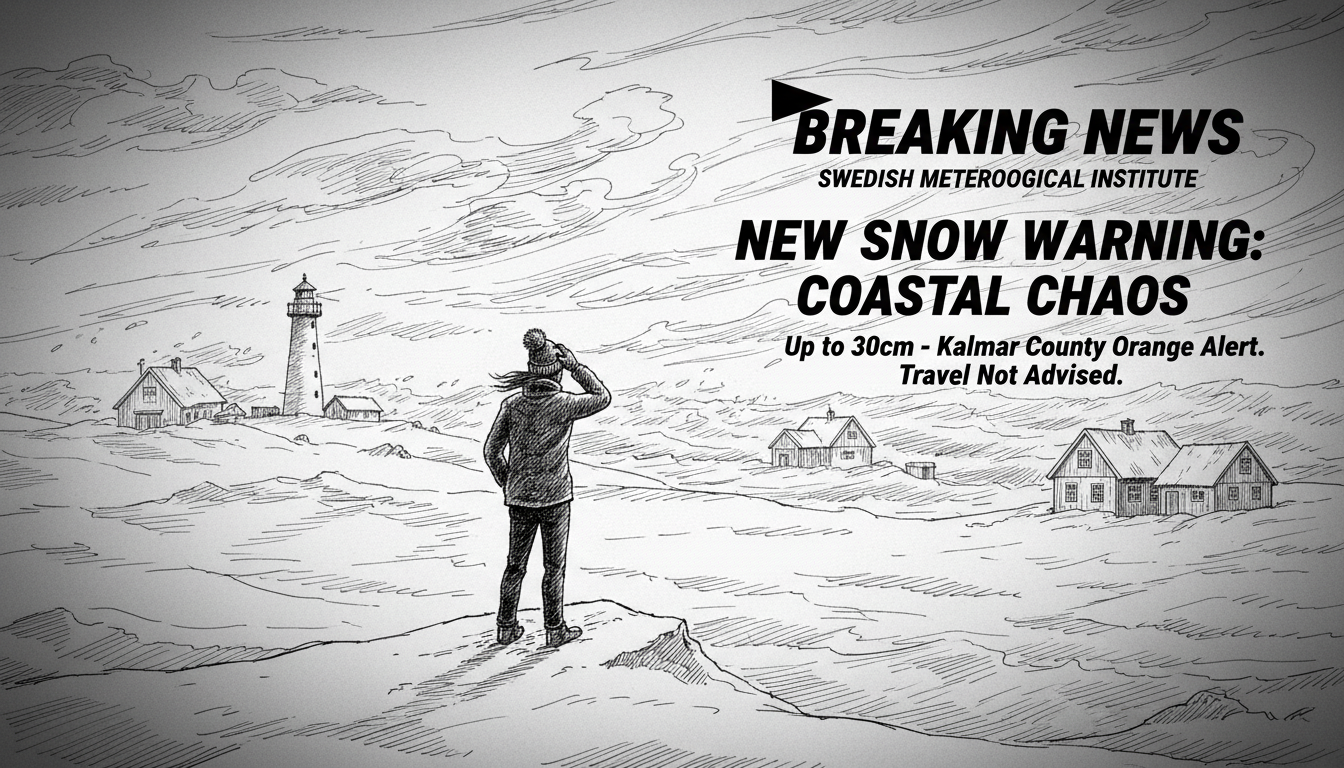The Swedish Meteorological Institute has issued a new orange snow warning for parts of northern Kalmar County. Heavy snowfall is expected to accumulate up to 30 centimeters along coastal areas. The warning remains in effect until 11 PM on Thursday. Authorities are advising residents to avoid unnecessary travel during this period.
Three separate snow warnings currently cover different regions of Sweden. A large yellow warning zone stretches from Malmö to just south of Åtvidaberg. Another yellow warning affects the coastal area between Gävle and Sundsvall. The most severe orange warning focuses specifically on Kalmar County's coastline.
Sweden's emergency response system activates automatically during such weather events. Municipalities deploy additional snow removal resources when meteorological warnings reach orange level. The Swedish Transport Administration typically increases road maintenance operations in affected regions.
International residents and visitors should understand Sweden's color-coded warning system. Yellow indicates potentially hazardous conditions, while orange signifies dangerous weather that could cause significant disruption. Red warnings, though not currently issued, represent extreme danger to society.
This early snowfall demonstrates Sweden's vulnerability to changing weather patterns. Coastal regions often experience heavier precipitation due to moisture from the Baltic Sea. The country's infrastructure is generally well-prepared for winter conditions, but sudden heavy snowfalls can still challenge transportation networks.
Local authorities recommend keeping emergency supplies at home during severe weather warnings. This includes extra food, medications, and backup power sources. Many Swedish workplaces allow remote working during orange-level weather alerts.
The timing of this snowfall is notable for early autumn. Southern Sweden typically experiences its first significant snow later in the season. Climate researchers have noted increasing weather variability across Scandinavia in recent decades.
Road maintenance crews are focusing on keeping major highways clear. Secondary roads in rural areas may experience longer clearing times. Public transportation services often run reduced schedules during severe weather conditions.
Sweden's approach to winter preparedness involves coordinated efforts between multiple agencies. The Meteorological Institute provides forecasts, while regional authorities manage local response. This system generally functions effectively, though extreme weather can test its limits.
Residents in warning areas should monitor official channels for updates. The situation may change rapidly as weather systems develop. Emergency services remain on heightened alert throughout the warning period.

